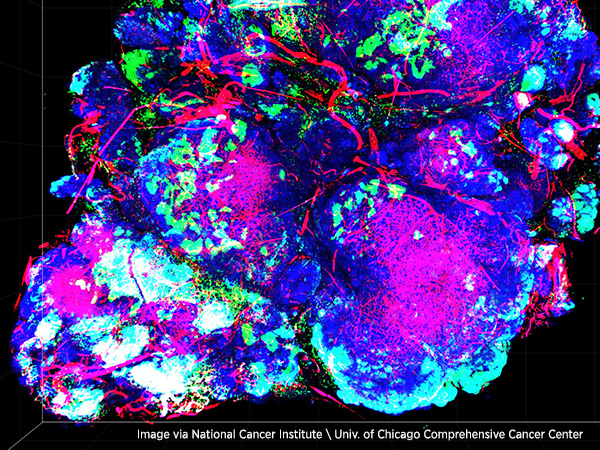Expanding Treatment Options for an Aggressive Breast Cancer
The FDA has approved a new targeted therapeutic for certain patients with HER2-positive breast cancer who were previously treated with other targeted therapies.

The U.S. Food and Drug Administration (FDA) has approved the targeted therapeutic margetuximab-cmkb (Margenza), in combination with chemotherapy for treatment of adult patients with HER2-postive breast cancer who have received two or more prior treatments with HER2-directed therapies, with at least one of those having been for metastatic disease.
HER2-positive breast cancer is a type of breast cancer that stems from a genetic alteration that spurs production of high levels of the HER2 protein that helps cancer cells grow. Margetuximab-cmkb is a type of immunotherapy called a monoclonal antibody that is designed to attach to the HER2 protein and disrupt its function.
The approval was based on data from a randomized, multicenter, open-label trial. It involved 536 patients whose cancer cells tested positive for HER2 receptors and who had metastatic disease despite being on other anti-HER2 therapies. Patients were randomly assigned to receive either margetuximab plus chemotherapy or a different HER2-targeted therapeutic, trastuzumab (Herceptin), plus chemotherapy.
The median progression-free survival for the margetuximab group was 5.8 months compared to 4.9 months for patients in the control arm. Overall response rate was 22 percent with a median duration of 6.1 months for patients in the margetuximab arm versus 16 percent with a median duration of 6.0 months for patients in the control group.
HER2-positive cancer cells are a defining feature of two of the four main subtypes of breast cancer. Patients with HER2-positive breast cancer have high levels of a protein called human epidermal growth factor receptor (HER2). The discovery of its genetic link to breast cancer spawned development of HER2-targeted treatments.
According to the National Cancer Institute, an estimated 20 to 30 percent of all breast cancers are HER2-positive and high levels of HER2 protein in the breast tumor are linked to a greater likelihood of metastasis, relapse, and an overall decrease in patient survival. According to federal statistics, more than 275,000 women in the U.S. are diagnosed with breast cancer each year. The five-year survival rate is 90 percent.
The FDA approval was rendered on December 16, 2020.
